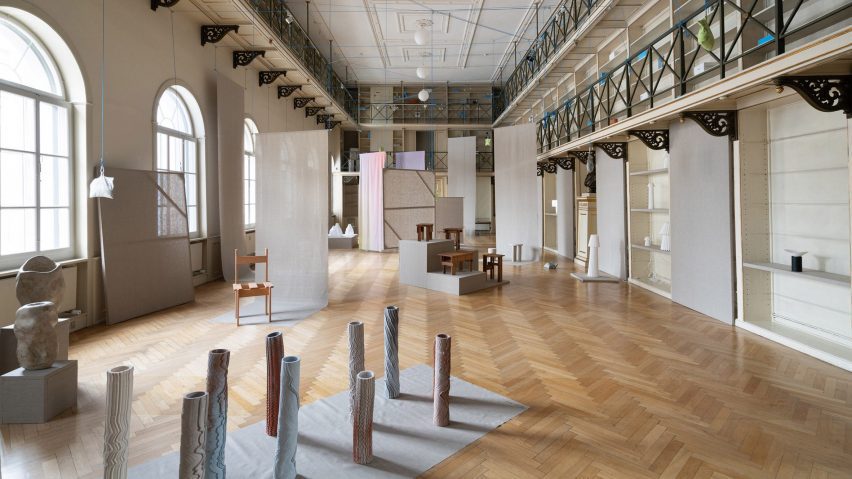
Bauhaus-informed chair and hemp vases feature in Ukurant Perspectives exhibition
Exhibition platform Ukurant has launched Perspectives, a showcase of emerging designers, in Copenhagen as part of 3 Days of Design.
Held in a high-ceilinged former library in the centre of Copenhagen, the show was curated by Ukurant founders and recent graduates Laerke Ryom, Kamma Rosa Schytte, Kasper Kyster and Josefine Krabbe Munk.
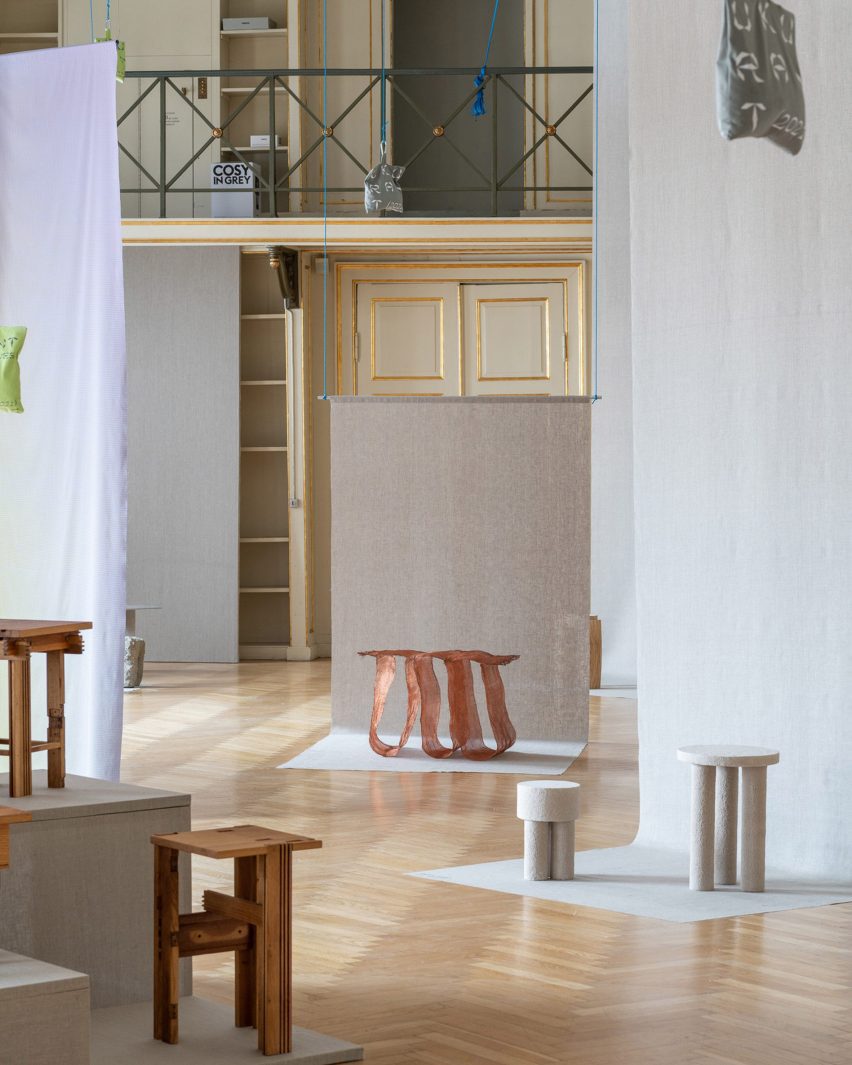
Exhibition designers Frederik Gustav transformed the space, which showcases work by 17 emerging designers, to give the room the feel of a theatre.
"We see it as a technical room where we have a lot of backdrops and a lot of stage curtains that all, in different ways, set the stage for each artist and their different work," Frederik Gustav founders Frederik Weber and Gustav Dupont explained.
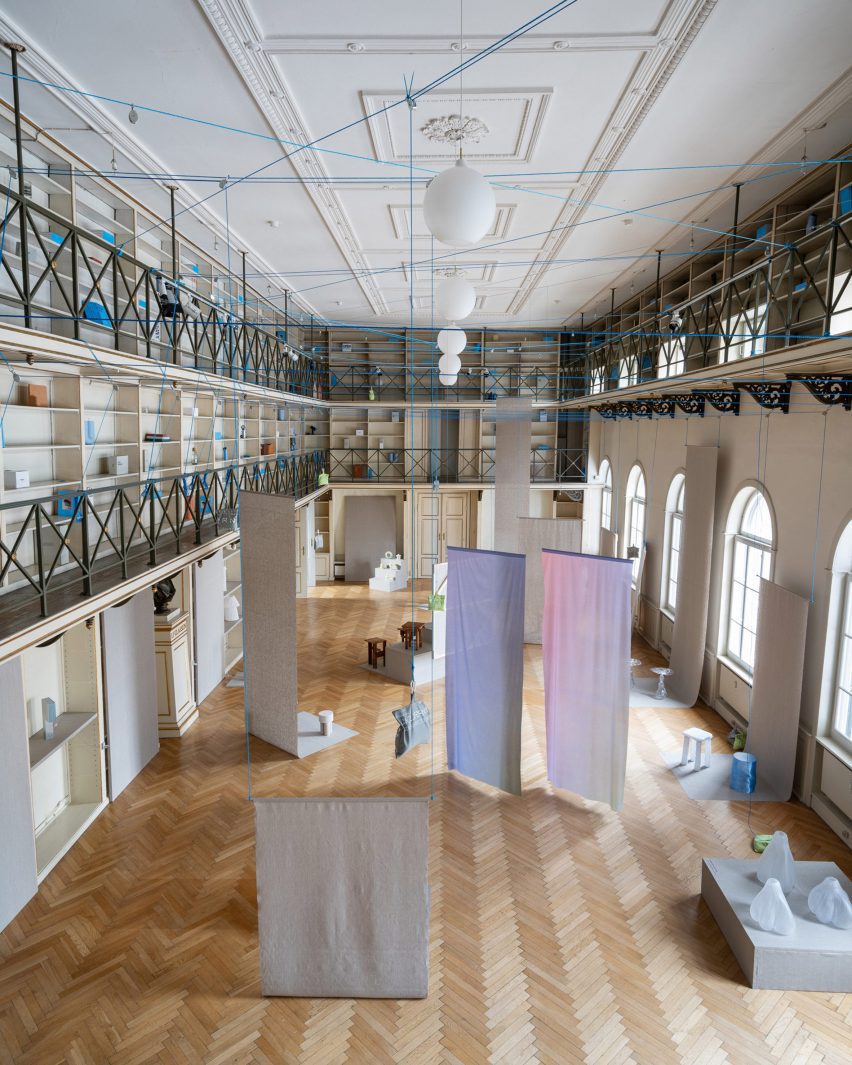
The designs are displayed in front of individual stage curtain backdrops, held up by blue strings that criss-cross beneath the ceiling and are weighed down by sandbag-like Ukurant tote bags.
This is the Ukurant exhibition, after the initiative premiered at 3 Days of Design last year, and features pieces by upcoming designers from all over the world.
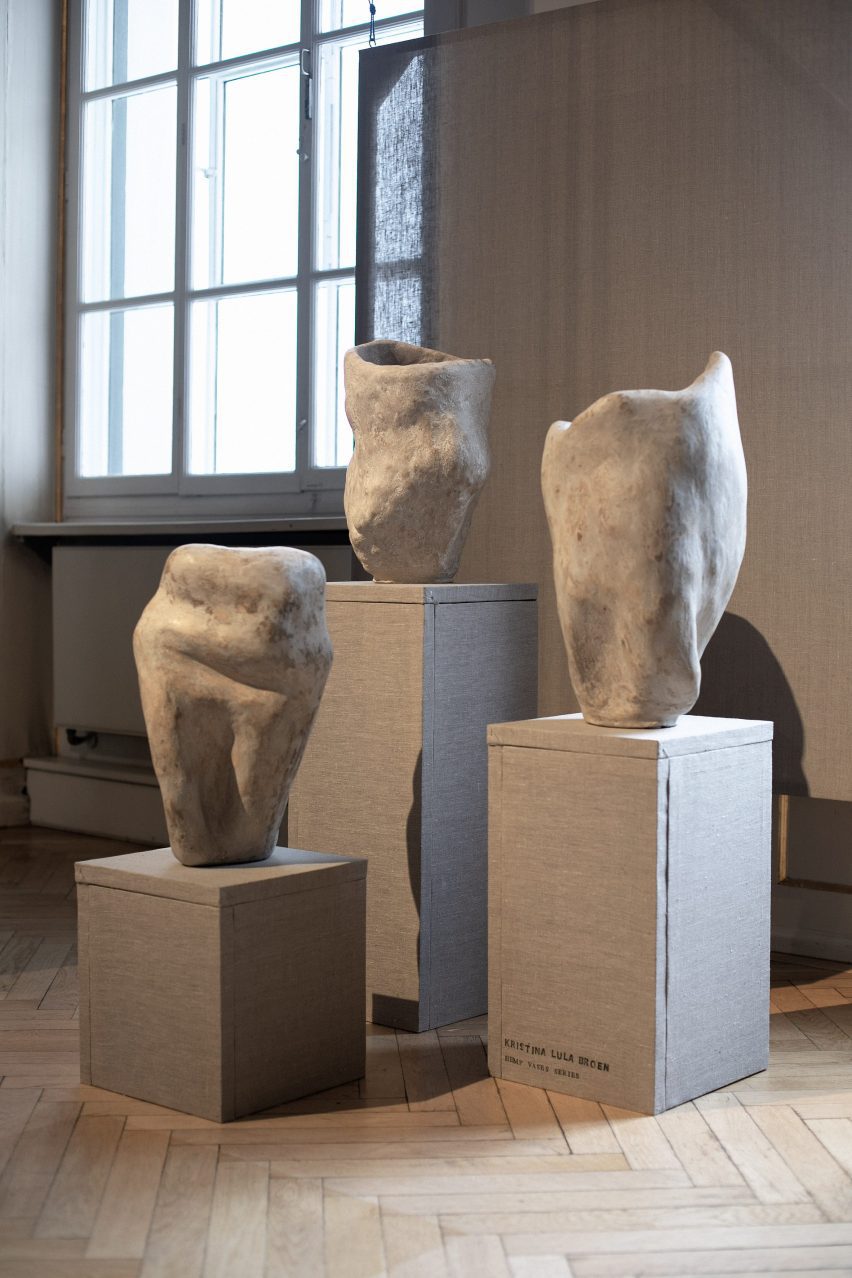
Among the designs on show is Kristina Lula Brown's Hemp Vases series, which were developed to make use of a hemp byproduct that otherwise would have gone to waste or been used for rabbit and horse feed.
"The vases are made from hemp hurds – a bioproduct of industrial hemp – that was mixed together with chalk and water and then moulded by hand, before being given another layer of chalk and then a finishing layer of beeswax to make it smooth," the Danish designer told Dezeen.
The vases can eventually be broken down and mixed with more chalk and water in order to be remoulded, making for a design that is endlessly recyclable.
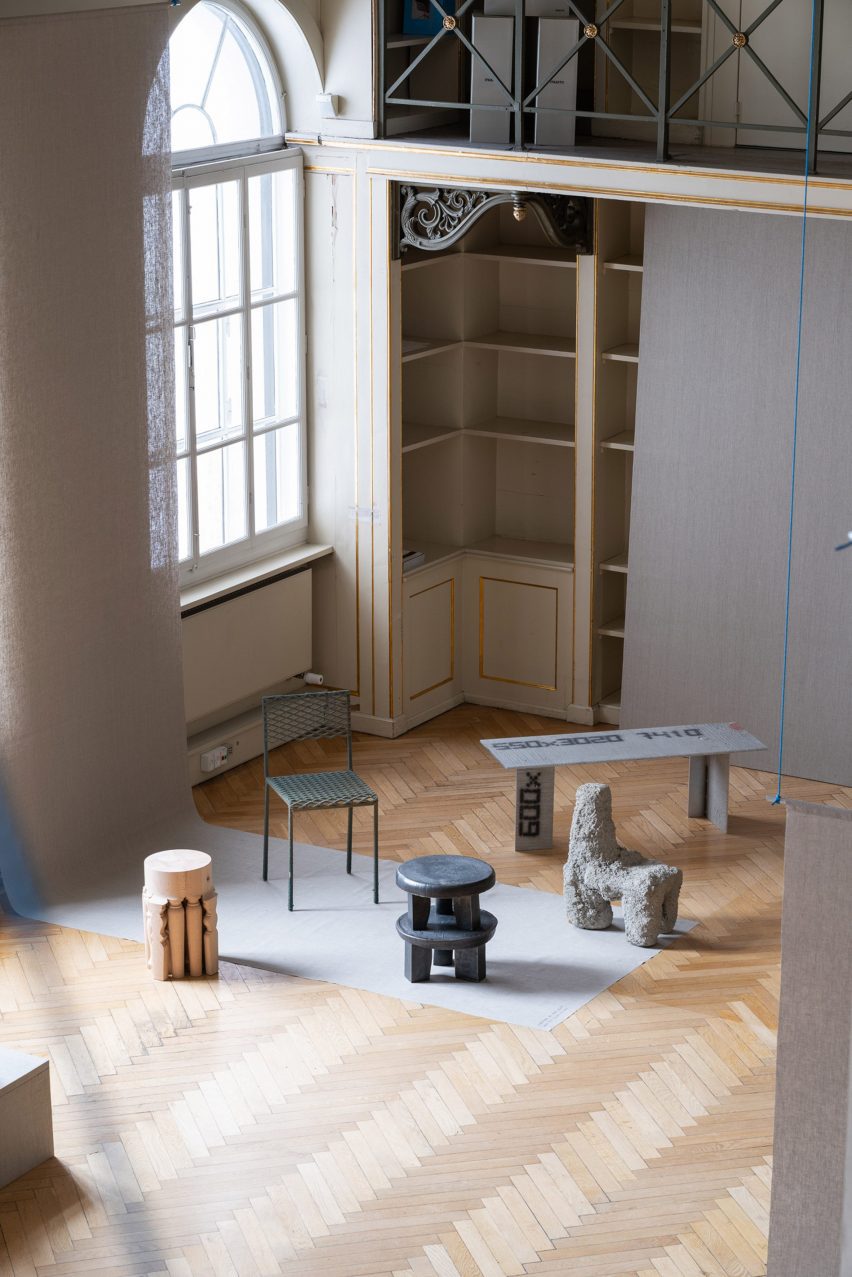
Industrial designer Carsten in der Elst, from Cologne, Germany, also used waste materials for his Heavy Duty Collection 2020, which is comprised of five pieces that are all made from industrial byproducts.
"My pieces are made from the byproducts of a woodturner, an industrial forge press, an aluminium company, a construction site and a coating company," he explained.
The resulting furniture includes heavy circular side tables made from forged steel and chairs covered in polyurethane dust and shotcrete.
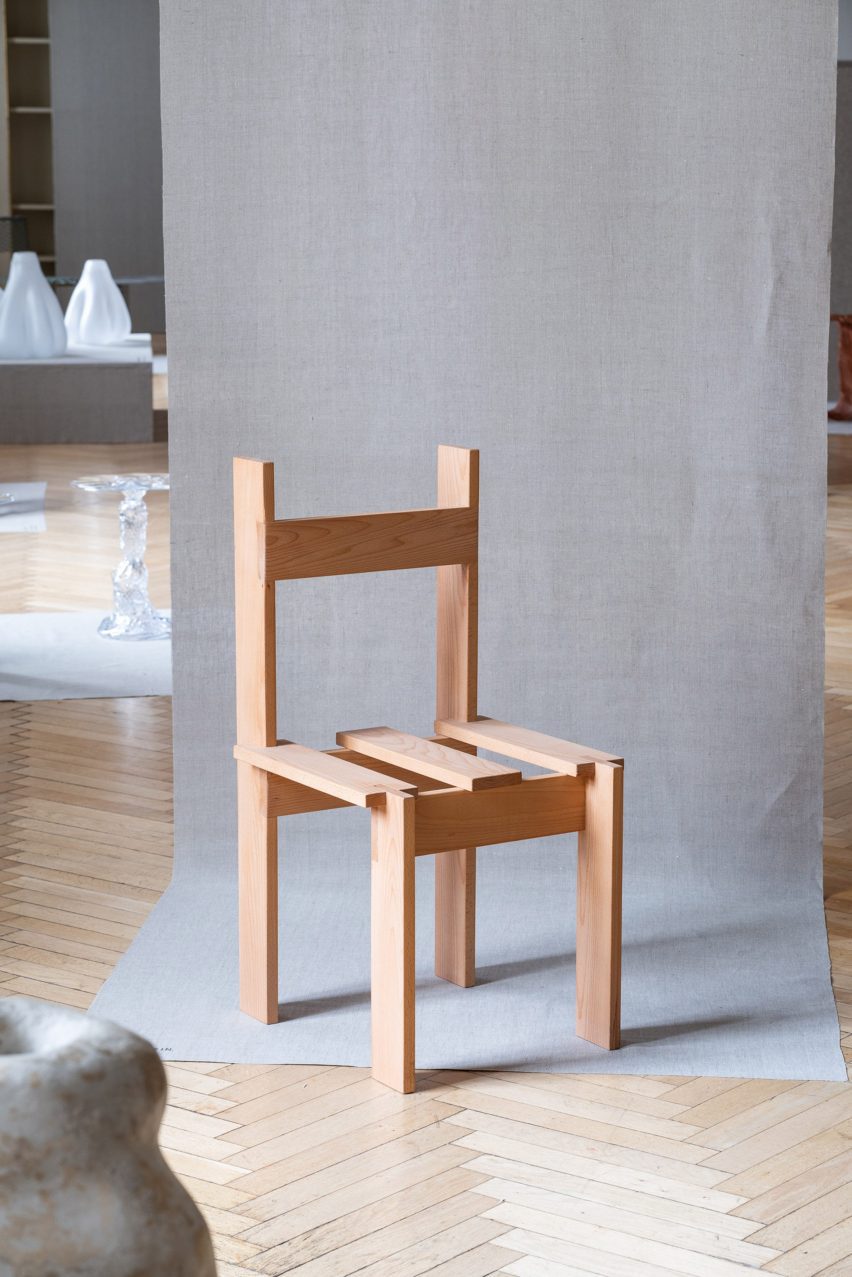
German designer Tanita Klein looked to create an accessible design with her Lath Chair, which was constructed from beechwood laths joined together using traditional wood joinery techniques.
"It was inspired a little bit by my German heritage," the designer told Dezeen.
"I looked to the Bauhaus movement in the 1920s, which was a lot about making design more accessible and for it to reach more people."
"My chair is made from a very standardised wooden beam that you can get anywhere in Europe in different profiles," she added.
"This is just made from one profile and it's all about the wooden connections – the design of it is inspired by a super-stereotypical idea of a chair."
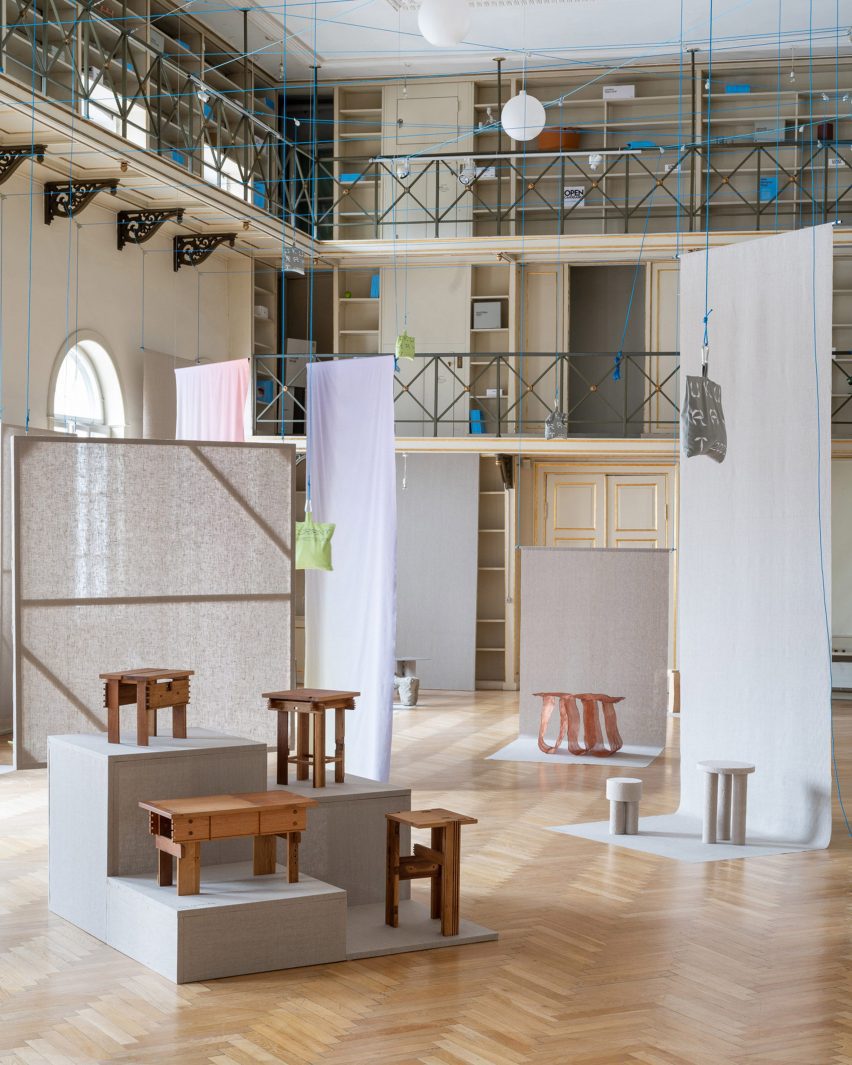
The designers taking part in this year's Ukurant Perspectives exhibition were chosen from an open call for young global designers, which received more than 200 applications.
"When we pick out the works for this exhibition we value experimental character, craft and originality," co-founder Krabbe Munck said.
"When we enter 3 Days of Design, we really want to get in touch with the established scene," she added. "When we are here, we really think that we are on equal ground with the bigger companies."
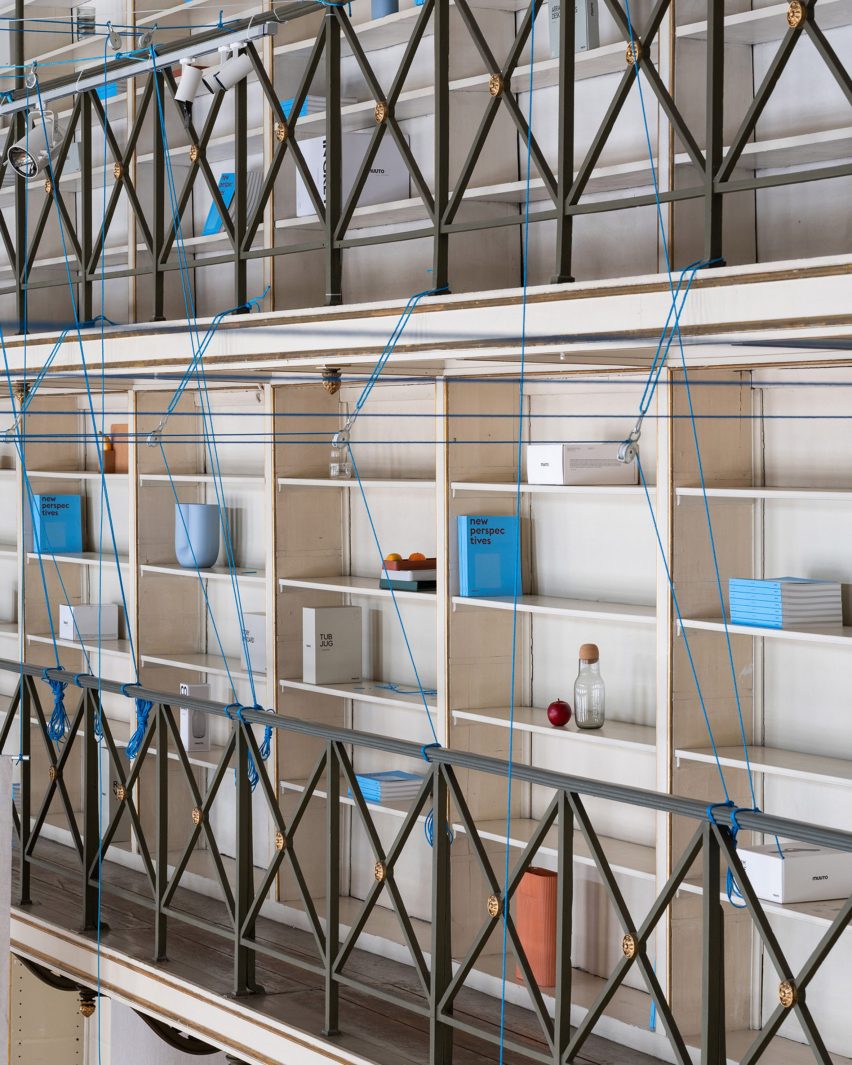
This year's exhibition was supported by design brand Muuto, which showcased some of its goods on shelves above the main exhibition space and for which Ukurant designers Davide Ronco and Pablo Dorigo also created a sculpture.
According to the curators, working with a bigger brand didn't change the way Ukurant works.
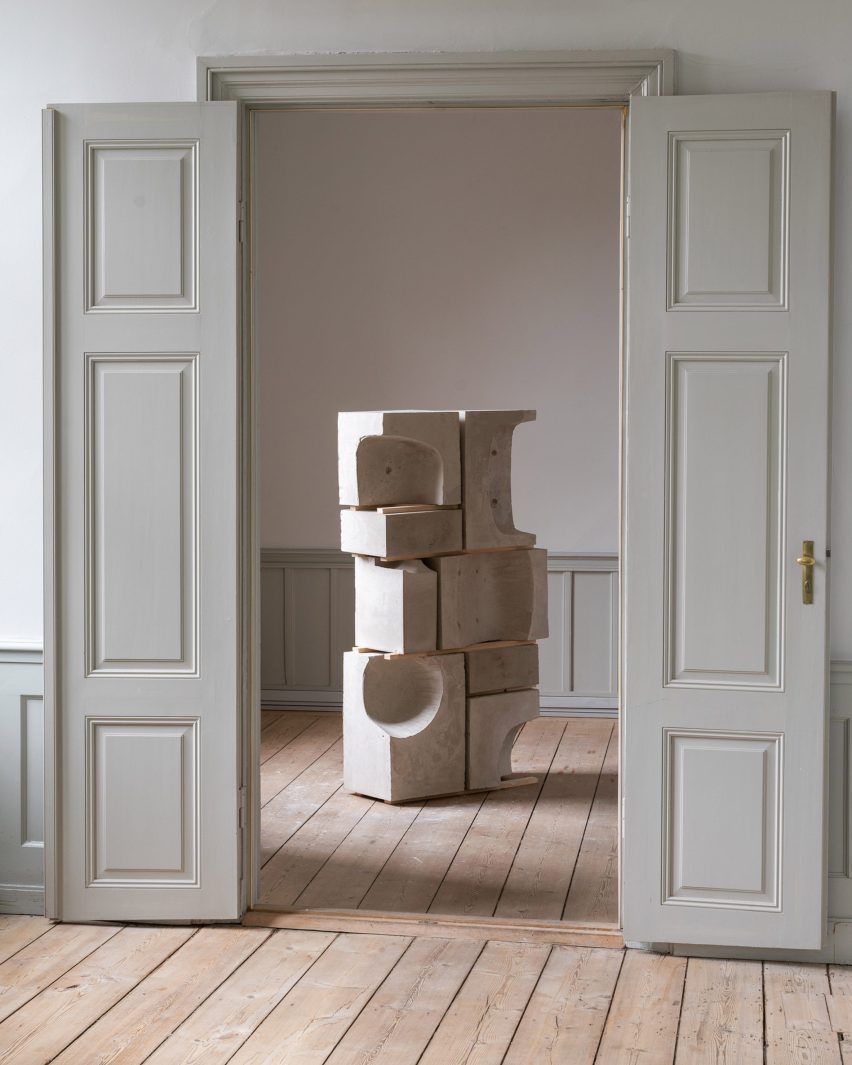
"When Muuto contacted us and suggested this collaboration, it was very important for us to still be autonomous and do our own thing," co-founder Rosa Schytte told Dezeen.
"We are one thing and they are another thing and the interesting thing is the meeting between us. When we curated the show it was important that it was our decision and our perspective, to keep the young perspective which is the whole point of this."
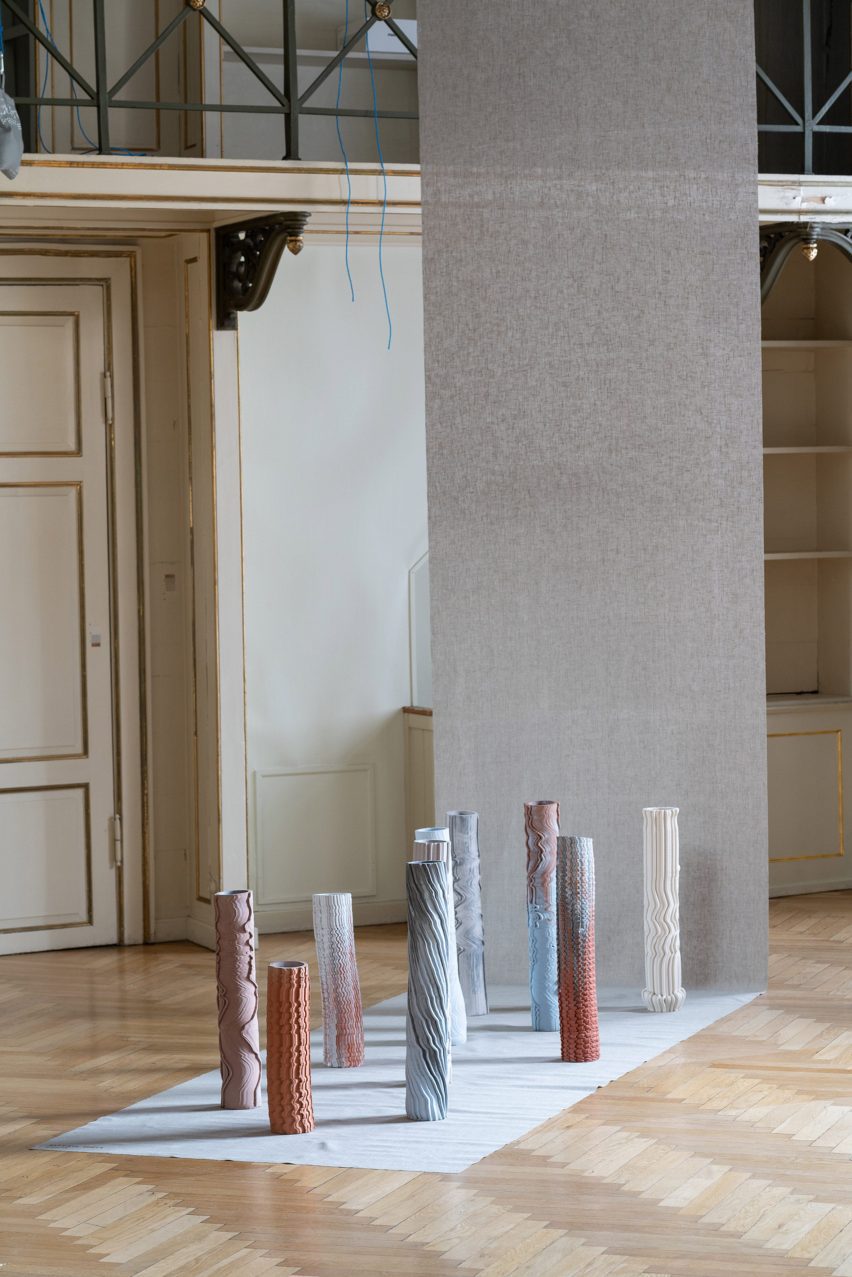
The annual exhibition also works with a different graphic designer, exhibition designer and photographer each year, which it gives free hands to create what they feel is appropriate for Ukurant.
"We don't do a theme because we really want to see what inspires and interests the designers themselves and what is important to young designers right now, so I guess that can be the grand theme," Rosa Schytte said.
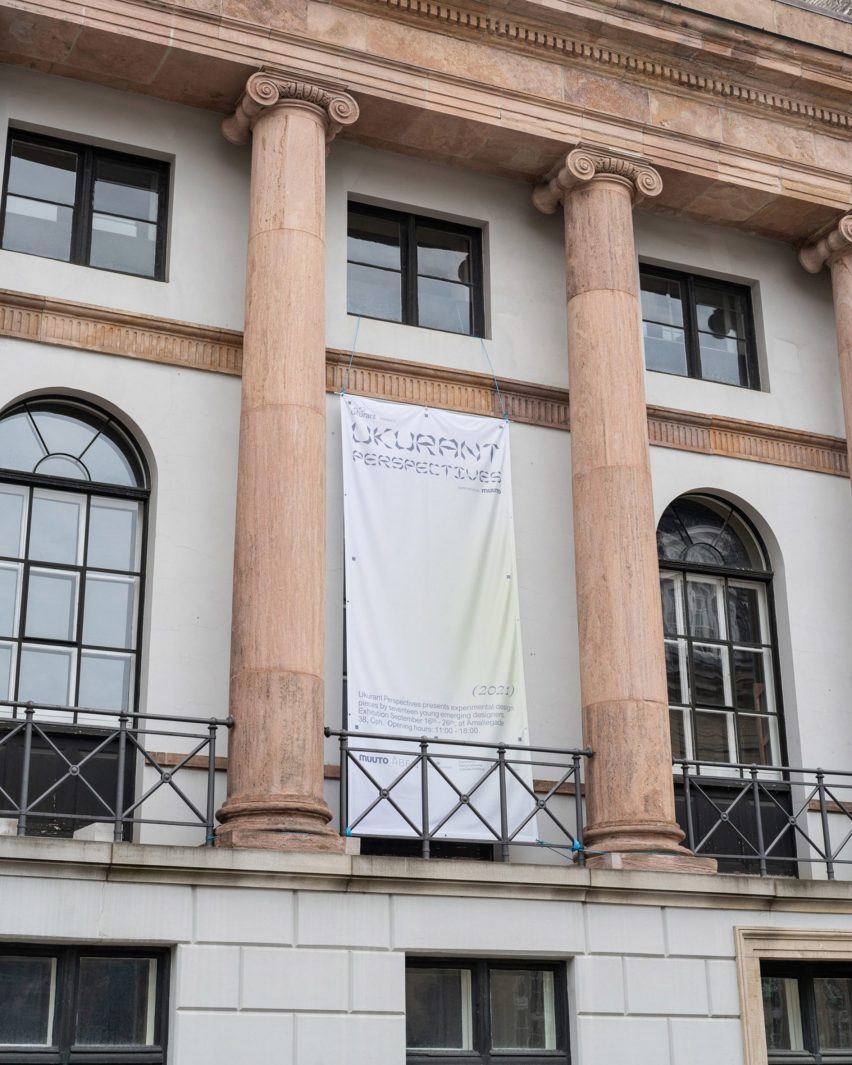
"In the end, what's important to us is that when people leave here, they have a feeling," she added. "It doesn't have to be a good feeling, they can also feel provoked – but they have to feel something."
Ukurant Perspectives was awarded 3 Days of Design's prize for Exhibition of the Year. It was one of many design showcases at this year's 3 Days of Design, which also included the renovated Hay House 2.0.
Photography is by Jonas Jacob Svensson.
Ukurant is on show at 3 Days of Design from 16 to 26 September. See Dezeen Events Guide for an up-to-date list of architecture and design events taking place around the world.